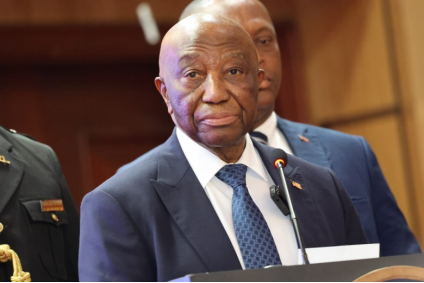Liberian President Joseph N. Boakai Sr. unveiled a comprehensive, multi-billion dollar national development plan at the Fourth World Conference on Women, held concurrently with the eightieth session of the UN General Assembly. This ambitious $8.3 billion Agenda for Inclusive Development, as it’s termed, prioritizes critical areas such as gender equality, youth empowerment, education, healthcare, and overall social development. President Boakai emphasized the urgency of transitioning from symbolic commitments to concrete actions, particularly in light of the 30th anniversary of the Beijing Declaration and Platform for Action. He stressed Liberia’s commitment to tangible results, positioning the nation’s progress as a model for achieving the goals set forth in the Beijing Declaration. Boakai’s address highlighted the importance of this moment, not as a mere ceremonial occasion, but as a pivotal point for enacting real change.
Central to the Agenda for Inclusive Development is a robust focus on gender equality and women’s empowerment. The plan outlines key strategies, including a zero-tolerance policy for gender-based violence, supported by public awareness campaigns, educational initiatives, and dedicated budgetary allocations. This commitment extends to permanently banning harmful cultural practices, moving beyond temporary moratoriums to establish enforceable national laws. Furthermore, the plan incorporates a National Action Plan for Young Women and Girls, designed as a comprehensive roadmap for their empowerment, protection, and active participation in society. This multifaceted approach demonstrates Liberia’s commitment to addressing the root causes of gender inequality and creating a more equitable society for all.
President Boakai illustrated the effectiveness of this approach by showcasing ongoing projects already yielding tangible results. The Liberia Women Empowerment Project, for example, is empowering 36,000 businesswomen across six counties, indirectly benefiting approximately 260,000 Liberians through increased income and enhanced resilience. Similarly, the REALISE Project provides crucial support to 53,650 vulnerable households, including cash transfers to 16,000 families, primarily headed by women, and business assistance to 4,450 individuals, with women representing 80% of the recipients. These initiatives demonstrate a commitment to not only empowering women economically but also recognizing their pivotal role in their families and communities.
Further emphasizing the commitment to youth development, President Boakai highlighted programs like Nurture, Empower, and Protect (NEP) and Accelerating Impact for Young Women. These initiatives have equipped nearly 25,000 adolescent girls and young women with essential skills in health, entrepreneurship, and life management. The projected reach of these programs is substantial, with an estimated 160,000 young women expected to benefit by 2031. By investing in young women, Liberia is investing in its future, recognizing their potential as agents of change and drivers of progress. This focus on youth empowerment underscores the understanding that sustainable development requires the active participation of all segments of society, particularly the younger generation.
Leveraging Liberia’s two-year term on the United Nations Security Council, President Boakai pledged to amplify the voices of women and youth within the Women, Youth, Peace, and Security agenda. This commitment highlights Liberia’s role on the global stage, advocating for the inclusion and empowerment of marginalized groups in peacebuilding and security efforts. This aligns with the broader goal of promoting inclusive governance and ensuring that the perspectives of women and youth are integrated into international decision-making processes.
President Boakai’s address concluded with a powerful call to action, emphasizing the intergenerational impact of the proposed development agenda. He reiterated Liberia’s commitment to collaborating with Africa and the global community to translate the aspirations of Beijing+30 into tangible realities. The President framed the development plan not as a short-term initiative but as a long-term investment in the future of Liberia, emphasizing the legacy being built for generations to come. This forward-looking perspective underscores the understanding that sustainable development requires a sustained commitment to progress, ensuring that the benefits are enjoyed not only by the current generation but also by those who follow. The emphasis on collective action reinforces the belief that achieving these ambitious goals requires collaboration and partnership at all levels, from local communities to the international stage.














